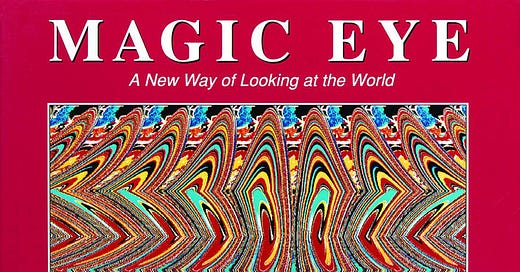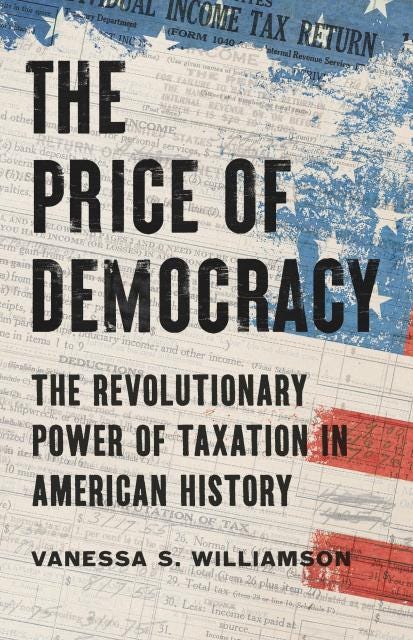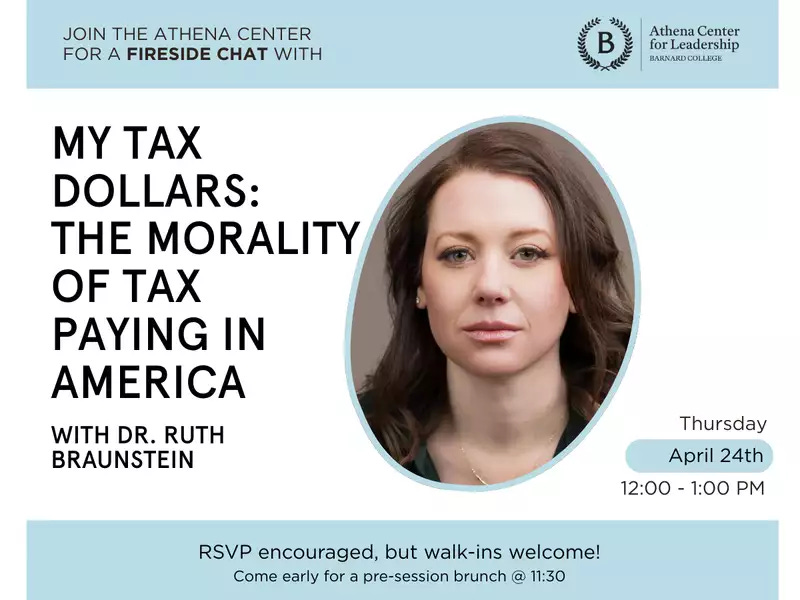Is right-wing news a religion?
An interview with the authors of "Beyond Polarization." Plus, how to stop being a pawn of the internet overlords.
I am a millennial, which means I spent a lot of time at the mall as a teenager. One of my favorite stops was the kiosk with those Magic Eye posters.
They look like abstract 2-D patterns in bright colors, but if you stare long enough and let your eyes go slightly out of focus, a clear 3-D image emerges.
One of the things I love about sociology is that, like a good Magic Eye poster, it helps us see patterns in the world that are invisible to the untrained eye.
So when I read a new article in a leading sociology journal that helped me understand right-wing media more clearly than I ever had before, I knew I wanted to share it here.
The article, “Beyond Polarization: Right-Wing News as a Quasi-religious Phenomenon,” was written by Marcus Mann and Daniel Winchester, both of Purdue University, and published in Sociological Theory.
I know many of you don’t read scholarly articles for fun, so I asked Marcus and Dan if they’d be wiling to do a short Q&A to unpack the big takeaways.
Q: What do you mean when you call right wing news a quasi-religious phenomenon?
A: When we characterize right-wing news as quasi-religious, we don’t mean to imply that folks are being irrational by engaging with this content. Instead, we are identifying three specific ways right-wing news is reflecting features that research and theory in sociology has classically associated with religion.
That is, we argue it is:
epistemically religious in its approach and understanding of legitimate knowledge as faith-based and axiomatic (as opposed to fact-based and empirically verifiable),
functionally religious because its main social purpose isn’t so much to inform a general public as build a united moral community with strong boundaries between in-groups and out-groups, and
ecologically religious because organizational change and competition in the right-wing news space exhibits schismatic tendencies that are very similar to what sociologists of religion have identified when studying how competing religious sects break off from more established churches.
We think calling attention to these resemblances helps explain what’s qualitatively different about right-wing news compared to its mainstream media counterpart.
We also think it helps us all better understand part of what makes right-wing news so compelling to many people in the contemporary United States. Like religion, right-wing news is a powerful source of meaning-making and provides people with a strong sense of community shared with like-minded others.
Q: How is this different from what you call mainstream news, or even explicitly politically progressive news?
A: This is a great question. We characterize mainstream news as a bit of a historical anomaly in the broader history of news in the United States. Many of its epistemic, functional, and ecological features were established in the middle of the twentieth century – a time of unprecedently high trust in institutions, low polarization, and low economic inequality.
At that time, strong journalistic norms and government regulation positioned a handful of media entities (e.g. NBC, CBS, ABC) to report straight news to a large and increasingly diverse country. This is when verifiable “fact-based” news, as opposed to opinion, became the most broadly legible and appreciated epistemic currency.
Functionally, these professionalized news organizations built a broadly shared understanding of politics and current events in US society, especially when compared to the past and our current day. And, ecologically, these epistemic and functional features made mainstream news a much less volatile field than the right-wing, leading to incredible organizational and market stability even with the advents of cable news, the internet, and social media.
As for characterizing politically progressive news, this is a limitation of our article but, in terms of scale, we think this limitation makes sense. From previous research it’s clear there is not nearly as much audience attention or engagement with left-wing news compared to mainstream and right-wing news. So mainstream (or “center-left”/center-right,” if you prefer) and far-right news is where the action is in America, so to speak. And this also means progressive news is more empirically difficult to study due to the paucity of organizations and audiences.
That said, we think it’s likely that progressive news is similar to right-wing news in the ways we describe in our article. There may be some cause for skepticism for this claim, though, in that today’s political right tends to be more demographically homogenous than the left which likely helps hypercharge several of the features we describe.
Q: As organizations consider how to combat dis/misinformation and conspiracy theories, including those that circulate in right-wing news, how can your approach inform those efforts?
As you and many people reading this probably know, research on interventions to address dis/misinformation has shown mixed results. While there has certainly been some success in developing strategies along the lines of debunking, pre-bunking, and fact-checking dis/misinformation, there has also been a fair share of disappointment – especially when such efforts are aimed at those with the strongest political identities.
We think our article helps explain such failures by characterizing a “fact-based” approach as somewhat beside the point for right-wing news audiences. If the epistemics and functions of such media are quasi-religious in nature, then focusing on what’s empirically true cannot address the underlying issue of folks seeking meaning, identity, and some kind of transcendence through political media.
Now, we don’t think this means that the battle against dis/misinformation is lost or that organizations should stop trying to fact check and improve media literacy. These remain important tasks. But what our argument highlights is that these strategies alone aren’t going to be successful in countering the type of dis/misinformation that appeal to people’s sense of belonging, their deep faith commitments, and shared grievances. Right-wing news audiences are seeking (and getting) a lot more than fact or fiction when they tune into Fox News, NewsMax, or the Daily Caller.
Of course, what specifically to do beyond fact-checking is a tough question, and our current paper doesn’t provide many answers on that score, unfortunately. But we’re hopeful that, if and as people more fully recognize the quasi-religious nature of right-wing news in America today, some new and innovative strategies can be devised.
Beyond important technical interventions, as sociologists, we also think it’s important to think and research more about the broader societal trends and conditions that have enabled right-wing news to become such a powerful arena for these quasi-religious dynamics. For example, researchers of religion have documented how organized religion has waned and religious disaffiliation has radically increased in the United States over the last two decades. But that doesn’t necessarily mean that Americans’ desires for some of the things that formal religious communities and identities provides has gone away.
Maybe, instead of church or temple, many Americans are now getting their beliefs and sense of belonging from political news media. We don’t yet know the answer, but we hope our article provides some footholds for other researchers to address this question more thoroughly.
One Thing™️ of the week
We can’t all do everything — but we can do one thing each week
Last week,
asked: Will the Dumbphone Make Us Smart Again? It reminded me of a great book by my colleague, the philosopher Michael P. Lynch, which argues that the internet age has led to “knowing more and understanding less.”Put differently, having a supercomputer in our pockets has given us cheap access to information, but has also short-circuited our ability to process it, to discern truth, and to collectively act upon it. On top of that, it is a 24/7 distraction machine controlled by people who want to sell you stuff, leading to more anxiety, more stress, worse sleep, and the list goes on and on.
It’s hard not to view our smartphone addictions as a big part of the story of how we are sleepwalking into authoritarianism. And I don’t like feeling like a pawn. So I clicked the link on how to “dumbify our phones.”
The article provides step-by-step instructions for how to dumb-down the smartphone you already own (because we don’t need to buy more stuff to solve our problems!).
I have not performed the entire “lobotomy” on my phone just yet, but I decided to take a few steps in that direction and see how it felt. Here’s what I did:
I turned off ALL of the notifications on all of my apps except the phone and texts.
I moved all of my social media apps to a folder and moved the folder off the Home Screen (I now have to swipe to the next screen to see it).
That’s it. And guess what? I spent a day checking my home screen obsessively, checking for notifications. But they weren’t there, so I stopped checking. My brain feels clearer already.
Do you have other tips on how to free ourselves from the overlords? Please share them.
What I’m consuming
Here are the smart people I’m reading/watching/listening to
I was thrilled to see that Vanessa Williamson’s new book, The Price of Democracy: The Revolutionary Power of Taxation in American History, is now available for pre-order.
If you are reading My Tax Dollars, you will hear quite a lot about Williamson’s incredible last book. The new one promises to be a must-read as well.
Latest News
If you’re not sick of me yet, a round up of more words from yours truly
Today, I am thrilled to be having a “fireside chat” about My Tax Dollars at Barnard’s Athena Center for Leadership.
And this weekend, I am looking forward to spending time with my friends at Yale's Center for Cultural Sociology, and delivering the keynote address at their Spring Conference. I will be talking about, you guessed it, My Tax Dollars!
If you are interested in hosting a conversation with your community about the moral dimensions of taxation, I’d love to join and share my research with you! Please contact me here.
Something Light
A little palette cleanser before you go
I finally caught up on the latest season of White Lotus. Please respect my privacy while I process…. whatever that was. 👀
I am now in need of something…. less stressful and disturbing? I am a huge fan of the Thursday Murder Club books by Richard Osman, and have been told that this wacky new show (The Residence, starring Uzo Aduba as a detective called in to solve a murder at the White House) has a similar vibe. Count me in!
If you’ve enjoyed this post… please subscribe to Democracy is Hard and share it with someone who may also enjoy it.





![Magic Eye: A New Way of Looking at the World : 3D Illusions [Book] Magic Eye: A New Way of Looking at the World : 3D Illusions [Book]](https://substackcdn.com/image/fetch/$s_!oMEV!,w_1456,c_limit,f_auto,q_auto:good,fl_progressive:steep/https%3A%2F%2Fsubstack-post-media.s3.amazonaws.com%2Fpublic%2Fimages%2F6fc2af1f-6c73-4544-9af8-9c7fd3cb857d_1805x1400.jpeg)




